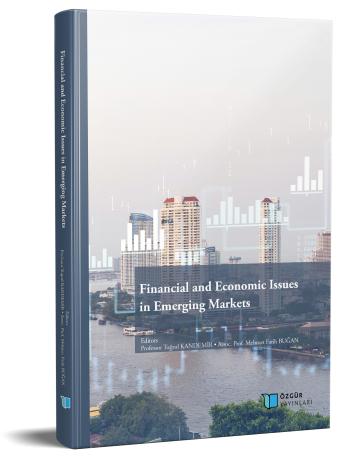
Jeopolitik Riskin Gelişmekte Olan Piyasalar Üzerindeki Etkileri
Şu kitabın bölümü:
Kandemir,
T.
&
Buğan,
M.
F.
(eds.)
2022.
Gelişmekte Olan Piyasalarda Ekonomik ve Finansal Konular.
Özet
Bu çalışmada, 1995:10-2019:4 dönemi arasında BRICS (Brezilya, Rusya, Hindistan, Çin, Güney Afrika) ülkeleri ve Türkiye’ye ait borsa endeksleri ile jeopolitik risk endeksi arasındaki ilişkiler panel veri yöntemleri ile incelenmiştir. Öncelikle, panelde yer alan ülkeler arasında güçlü bir yatay kesit bağımlılık söz konusu olduğu görülmüştür. Bu durum, paneldeki ülkelerden birinde meydana gelen bir şokun diğer ülkeleri de etkilediğini göstermektedir. Daha sonra yatay kesit bağımlılık durumunda kullanılan ikinci nesil panel birim kök testi sonuçlarına göre incelenen serilerin düzey değerlerinde durağan olmadığı görülmüştür. Söz konusu durağan dışılık panel kırılmalı testler ile de incelenmiş ve durağan dışılığın yapısal kırılmalardan kaynaklanmadığı tespit edilmiştir. Seriler arasındaki uzun dönemli ilişkinin incelenmesinde, yatay kesit bağımlılığına izin veren eşbütünleşme testi ve eşbütünleşme katsayı tahmincisinden yararlanılmıştır. Son olarak seriler arasındaki nedensellik ilişkisi yatay kesit bağımlılığı ve heterojeniteyi dikkate alan Panel nedensellik testi ile incelenmiştir.

